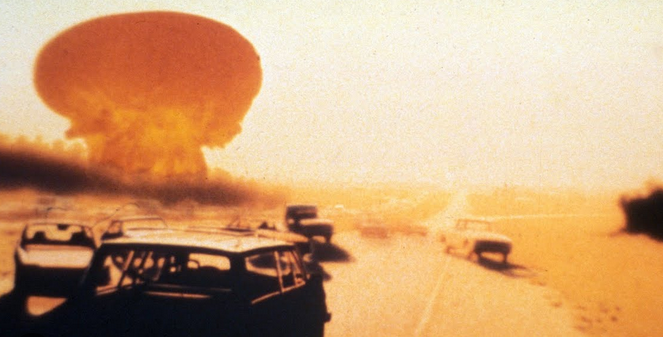This was still a man in the bush; the Congolese tasted a sampling of what kind of genocidal leader he would have become had he installed himself in power.
[The Central Africa Conflict]
The East and Central Africa region deserves relief after decades of genocidal conflicts that’s why the recent arrest of Laurent Nkunda by Rwanda’s military is welcome. In the end, political differences in the region must be resolved through dialogue and negotiations.
Nkunda’s army –a darling of shady Western business interests– has been committing genocide and mass rapes in eastern Congo.
Ironically, Rwanda, which according to a recent United Nations report, financed, armed and supported Nkunda, could have arrested him a long time ago.
It’s no coincidence that Rwanda’s action comes only a few weeks since the UN report. Rwanda also didn’t want the Obama Administration to be immediately burdened with Nkunda’s genocide.
It was nonsense to read some sycophantic Western “reporters” including those for The New York Times and the BBC referring to Nkunda’s “spectacular” victories and “routs,” as if they were reporting about a video game. If the victims now buried in mass graves were Europeans, we doubt that editors would permit these words to characterize the horrors. The argument can convincingly be made that these fawning reportage and early whitewashing of his crimes emboldened Nkunda.
If Nkunda was so spectacular all by himself, how is it that he was easily arrested on the drop of a dime?
In fact, it was Rwanda’s shadow armed forces that had gained ground in eastern Congo. The Rwanda government is wary of the armed militias of Hutus across its border, saying that it plans genocidal attacks in Rwanda.
After the 1994 horrors, no nation is willing to upset the political status quo in Rwanda. It may be governed by an autocrat, Paul Kagame; but any armed conflict there would well spark massacres again.
Yet even Rwanda had to pull the plug when the erratic Nkunda resorted to open massacres in eastern Congo. He did not even bother to bury the bodies of the victims. At the same time, he pretended he was negotiating peace with Congo’s central government under Joseph Kabila through the UN’s special envoy, former Nigerian president Olusegun Obasanjo.
But Nkunda was addicted to Nkundaism; which is megalomania, tyranny and genocide. This was still a man in the bush; the Congolese tasted a sampling of what kind of genocidal leader he would have become had he installed himself in power.
In any event, Nkunda had no chance to seize control. This newspaper has learned that Angola’s leadership had already decided to send armed forces, including air forces, had Nkunda –Rwanda’s shadow army– continued its gains.
What’s more, Rwanda’s leadership is aware of the legal consequences of supporting Nkunda, who may already have been indicted by the International Criminal Court (ICC) although no indictment has been unsealed. Nkunda’s chief of staff, Bosco Ntaganda, was indicted last year by the Hague court. Nkunda is commander in chief of his army, and of his chief of staff. It makes no sense not to expect that he too has been indicted.
Which again leads to Rwanda.
Although the international community will stretch the envelop to ensure stability in Rwanda, human rights investigators and the United Nations have established a nexus between Rwanda’s leadership and its support for Nkunda. So, Rwanda’s political and military leadership are aware of possible legal liability of backing Nkunda, now that his eastern Congo massacres have been well documented.
After all, in the Sudan, President Omar Hassan al-Bashir was indicted by the ICC not because he allegedly physically committed the Darfur massacres himself, but because a nexus was established between him as commander in chief and those militias responsible for the Darfur atrocities.
Similarly, the ICC has been investigating the nexus between Uganda’s military and political leadership and the crimes committed in eastern Congo when the U.S.-backed Ugandan army occupied the Ituri region and sponsored more than 10 militias–in 2005 the International Court of Justice found Uganda liable of war crimes and plunder in the civil case and assessed $10 billion in compensation. Like addicts that need to feast on bloodshed, Ugandan combatants –the national army and the LRA rebels have exported new conflict into Congo, inviting additional legal exposure.
(It’s interesting to note that Jean Pierre Bemba, the commander of one of the militias sponsored by Uganda, is already in the Hague; he was captured in Europe last year after a secret indictment on other war crimes charges by his forces in Central African Republic was unsealed).
So, if Bashir could be indicted; and if Uganda’s military and political leadership could face indictment for the earlier Congo crimes, Rwanda’s leadership knows of the dangers of associating with Nkunda.
Was the divorce finalized timely?











